- Social Factors Help Explain Worse Cardiovascular Health among Adults in Rural Vs. Urban Communities
- Reducing Barriers to Participation in Population-Based Total Cost of Care (PB-TCOC) Models and Supporting Primary and Specialty Care Transformation: Request for Input
- Secretary Kennedy Renews Public Health Emergency Declaration to Address National Opioid Crisis
- 2025 Marketplace Integrity and Affordability Proposed Rule
- Rural America Faces Growing Shortage of Eye Surgeons
- NRHA Continues Partnership to Advance Rural Oral Health
- Comments Requested on Mobile Crisis Team Services: An Implementation Toolkit Draft
- Q&A: What Are the Challenges and Opportunities of Small-Town Philanthropy?
- HRSA Administrator Carole Johnson, Joined by Co-Chair of the Congressional Black Maternal Health Caucus Congresswoman Lauren Underwood, Announces New Funding, Policy Action, and Report to Mark Landmark Year of HRSA's Enhancing Maternal Health Initiative
- Biden-Harris Administration Announces $60 Million Investment for Adding Early Morning, Night, and Weekend Hours at Community Health Centers
- Volunteer Opportunity for HUD's Office of Housing Counseling Tribe and TDHE Certification Exam
- Who Needs Dry January More: Rural or Urban Drinkers?
- Rural Families Have 'Critical' Need for More Hospice, Respite Care
- Rural Telehealth Sees More Policy Wins, but Only Short-Term
- States Help Child Care Centers Expand in Bid To Create More Slots, Lower Prices
New Hypertension in Pregnancy Change Package Released
 Visit the Million Hearts website to download their Hypertension in Pregnancy Change Package. This quality improvement guide is full of tools and resources gathered from and tailored for clinical teams caring for pregnant and postpartum women in outpatient settings. Share it with your colleagues and networks. Select at least one change idea to implement and collaborate with others to expand the reach of this important work.
Visit the Million Hearts website to download their Hypertension in Pregnancy Change Package. This quality improvement guide is full of tools and resources gathered from and tailored for clinical teams caring for pregnant and postpartum women in outpatient settings. Share it with your colleagues and networks. Select at least one change idea to implement and collaborate with others to expand the reach of this important work.
Preventing and Addressing Sexual Violence Against People with Intellectual and Developmental Disabilities

HHS’ Administration for Community Living (ACL), the Office of the Assistant Secretary for Health, and the Administration for Children and Families (ACF) issued an informational memo about sexual violence against persons with intellectual and developmental disabilities. The letter, available on ACL’s website, raises awareness of the disparities that can put people with these disabilities at greater risk for sexual assault. It provides guidance and resources that help advocates and others recognize sexual violence and improve services for survivors.
Federally Qualified Health Center Telehealth Policies Fact Sheet
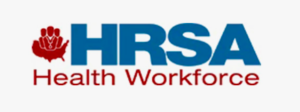
HRSA’s National Policy Telehealth Resource Center released a fact sheet to help Federally Qualified Health Centers (FQHCs) navigate Medicaid telehealth reimbursement. Find updated information and policies for Spring 2024. Read more.
Now Open: Substance Use Disorder Treatment and Recovery Loan Repayment Program
![]()
Are you passionate about helping those with substance use disorders? If you are a behavioral health clinician or support worker, clinical support staff, or are trained in substance use disorders, you can apply to the Substance Use Disorder Treatment and Recovery Loan Repayment Program (STAR LRP) and receive up to $250,000 in loan repayment. In exchange, you must work full-time for six years in a STAR LRP-approved facility. Make sure your health center is an approved STAR LRP site. The application is open now through June 27 at 7:30 pm ET.
Why Are Retail Health Clinic Experiments Struggling?
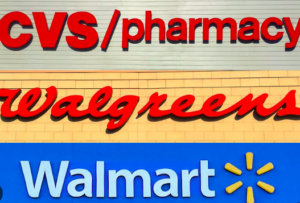 CVS, Walmart, and Walgreens are all scaling back or shuttering retail health clinics. Walgreens’ VillageMD recorded a $6 billion loss, an example of just how difficult it has become to generate profits from a healthcare model that retailers over the past decade bet would be a big win. Read more.
CVS, Walmart, and Walgreens are all scaling back or shuttering retail health clinics. Walgreens’ VillageMD recorded a $6 billion loss, an example of just how difficult it has become to generate profits from a healthcare model that retailers over the past decade bet would be a big win. Read more.
CMS Emergency Prepares Final Rule and Emergency Operations Plan, Creating a Document that Works
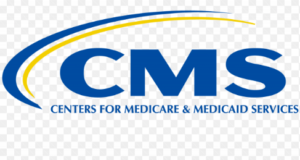 PACHC is facilitating this two-part webinar series with guest speaker Alexander Lipovtsev from Feldesman Leifer (formerly Feldesman Tucker Leifer Fidell). The first session is on June 5 from 1:00 – 2:00 pm. Alex will review the CMS EP Final Rule, discuss all its current requirements for FQHCs, how they may connect with the Joint Commission accreditation requirements, as well as provide some practical tips to ensure ongoing compliance. The second session will take place on July 2 from 1:00 – 2:00 pm and will explore best practices for developing an emergency operations plan (EOP) document for your organization, which is a required element by CMS. Registration cost is $50 for both webinars and you will receive the recording after the sessions. Register here.
PACHC is facilitating this two-part webinar series with guest speaker Alexander Lipovtsev from Feldesman Leifer (formerly Feldesman Tucker Leifer Fidell). The first session is on June 5 from 1:00 – 2:00 pm. Alex will review the CMS EP Final Rule, discuss all its current requirements for FQHCs, how they may connect with the Joint Commission accreditation requirements, as well as provide some practical tips to ensure ongoing compliance. The second session will take place on July 2 from 1:00 – 2:00 pm and will explore best practices for developing an emergency operations plan (EOP) document for your organization, which is a required element by CMS. Registration cost is $50 for both webinars and you will receive the recording after the sessions. Register here.
Pennsylvania Establishes Guidelines for Signatures for Telehealth and Audio-Only Services

In a recent conversation with the Office of Mental Health and Substance Abuse Services (OMHSAS) it was stated that audio-only services for telehealth should only be used when the individual does not have access to technology such as a smart phone, tablet, or computer that would allow real time audio-visual communication. Additional requirements for audio-only services include the following: payers are allowed to require a signature after each encounter, providers are still required to fill out service verification (encounter forms), and providers can send a form in the mail to patients with a pre-paid return envelope or utilize a HIPAA compliant system that captures an electronic signature in a manner that is auditable. If you have questions about obtaining a signature from your patients, please contact your payer.
Pennie Releases Data on Medicaid Unwinding Conversion Rate
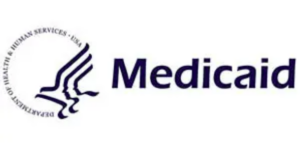 From April 2023 to Feb. 2024, Pennie engaged 412,070 Medicaid unwinding applicants through transfers from Medicaid and direct enrollments. Of the applicants, 61,567 enrolled in a plan for an average total conversion rate of 15% as of April 30. Philadelphia, Allegheny, Delaware, Berks, and Lehigh counties saw the largest number of unwind applicants. Unwinding consumers tend to pay less for coverage than other consumers due to the additional tax credits and cost-sharing reductions based on household size and income: 23% of enrollees paid less than $1 and 55% of enrollees paid $50 or less for a plan. The majority of the unwinding population, totaling 81% of enrollees, fell below 250% of the Federal Poverty Level and chose Gold or Silver plans. The data shows unwind consumers tend to be younger than the average consumer, more likely to be female, and more likely to be non-Hispanic/Latino. To view additional data, go to the May Pennie Board Meeting Deck.
From April 2023 to Feb. 2024, Pennie engaged 412,070 Medicaid unwinding applicants through transfers from Medicaid and direct enrollments. Of the applicants, 61,567 enrolled in a plan for an average total conversion rate of 15% as of April 30. Philadelphia, Allegheny, Delaware, Berks, and Lehigh counties saw the largest number of unwind applicants. Unwinding consumers tend to pay less for coverage than other consumers due to the additional tax credits and cost-sharing reductions based on household size and income: 23% of enrollees paid less than $1 and 55% of enrollees paid $50 or less for a plan. The majority of the unwinding population, totaling 81% of enrollees, fell below 250% of the Federal Poverty Level and chose Gold or Silver plans. The data shows unwind consumers tend to be younger than the average consumer, more likely to be female, and more likely to be non-Hispanic/Latino. To view additional data, go to the May Pennie Board Meeting Deck.
U.S. House Subcommittee on Oversight and Investigations to Hold “Oversight of 340B Drug Pricing Program” Hearing
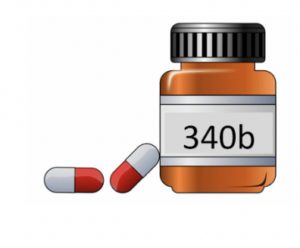
The Oversight and Investigations Subcommittee of the House Energy and Commerce Committee has scheduled a hearing on “Oversight of the 340B Drug Pricing Program” for Tuesday, June 4 at 10:30 am. The list of witnesses has yet to be announced. The hearing will be open to the public and press and will be live streamed online. Visit the committee website to learn more.
House Members Introduce Legislation to Ensure Access and Transparency in 340B Drug Pricing Program
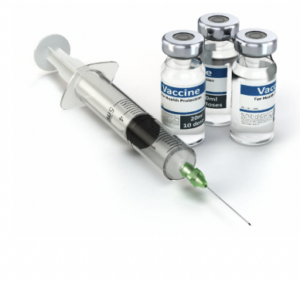
U.S. Representatives Larry Bucshon, MD (R-IN-08), Buddy Carter (R-GA-01), and Diana Harshbarger (R-TN-01) introduced the 340B Affording Care for Communities and Ensuring a Strong Safety-Net Act (340B ACCESS Act). This legislation, H.R. 8574, establishes critical oversight and transparency of the 340B program while providing clear, practical, and achievable solutions to ensure the 340B program can be a force for good in the nation’s health care safety net. The 340B ACCESS Act seeks to capture the policy principles which reflect the consensus of ASAP 340B members and will guide efforts to realign the 340B program in the interest of true safety-net providers and the communities they serve. Here are a few key highlights for those of us not in the weeds on 340B. This legislative solution:
· Protects Community Health Centers’ ability to serve all patients, regardless of their ability to pay, by increasing access to affordable medications and health services for medically underserved communities.
· Restores access to unlimited contract pharmacies, including access to mail order and specialty pharmacies, enabling greater access for health center patients.
· Ensures health centers and their patients have access to affordable medications for prescriptions written by specialty providers.
· Stops “middlemen” (corporations that seek to profit from savings) from taking the savings away from the health center that is providing overall care to the patient and their community.
· Increases transparency and accountability for all stakeholders in the program.
Click here to learn more. Call and email your Representative and ask them to cosponsor this legislation! NACHC is hosting a webinar on June 3 at 3:00 pm to provide additional information about the legislation. Register here.
